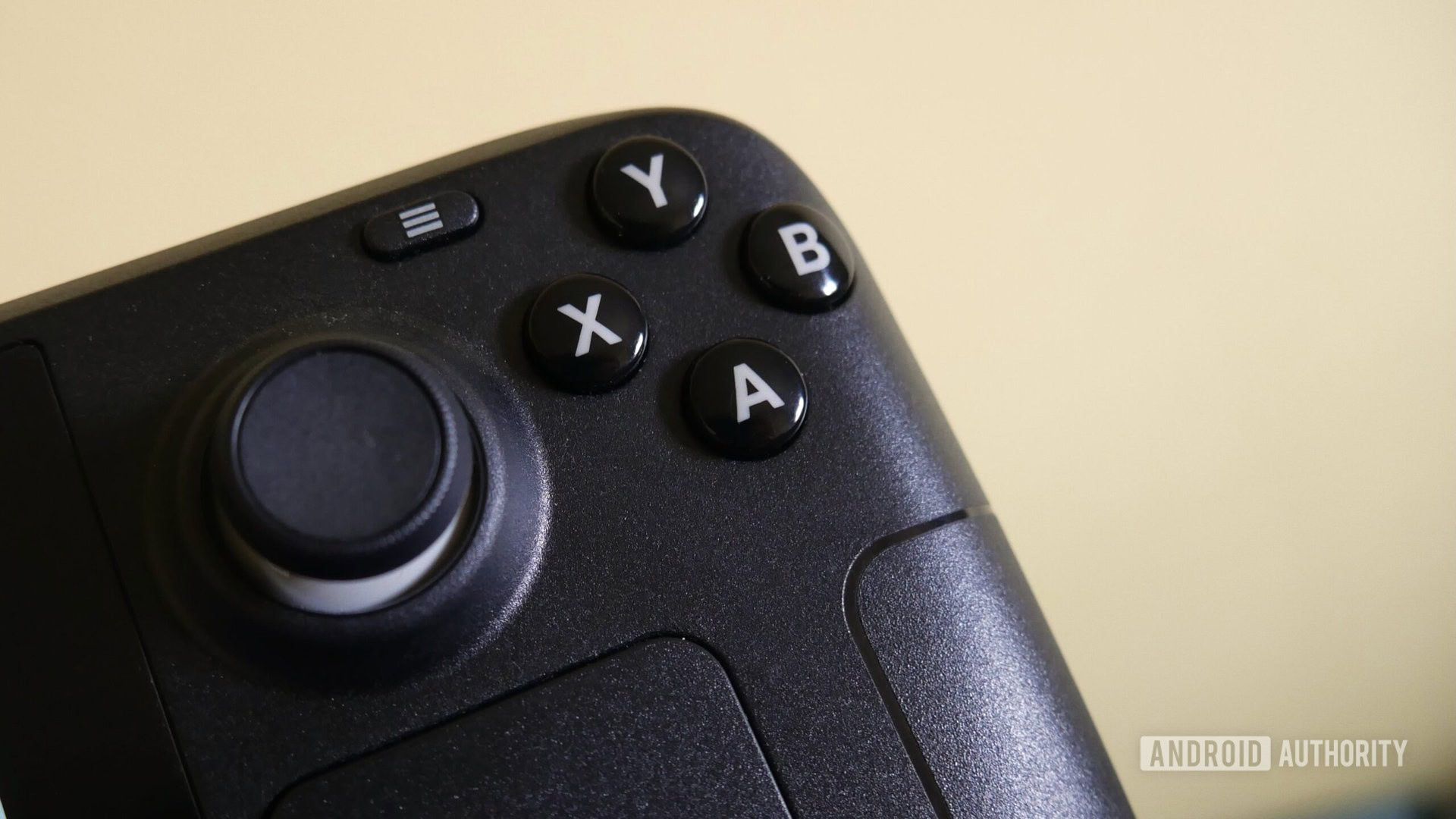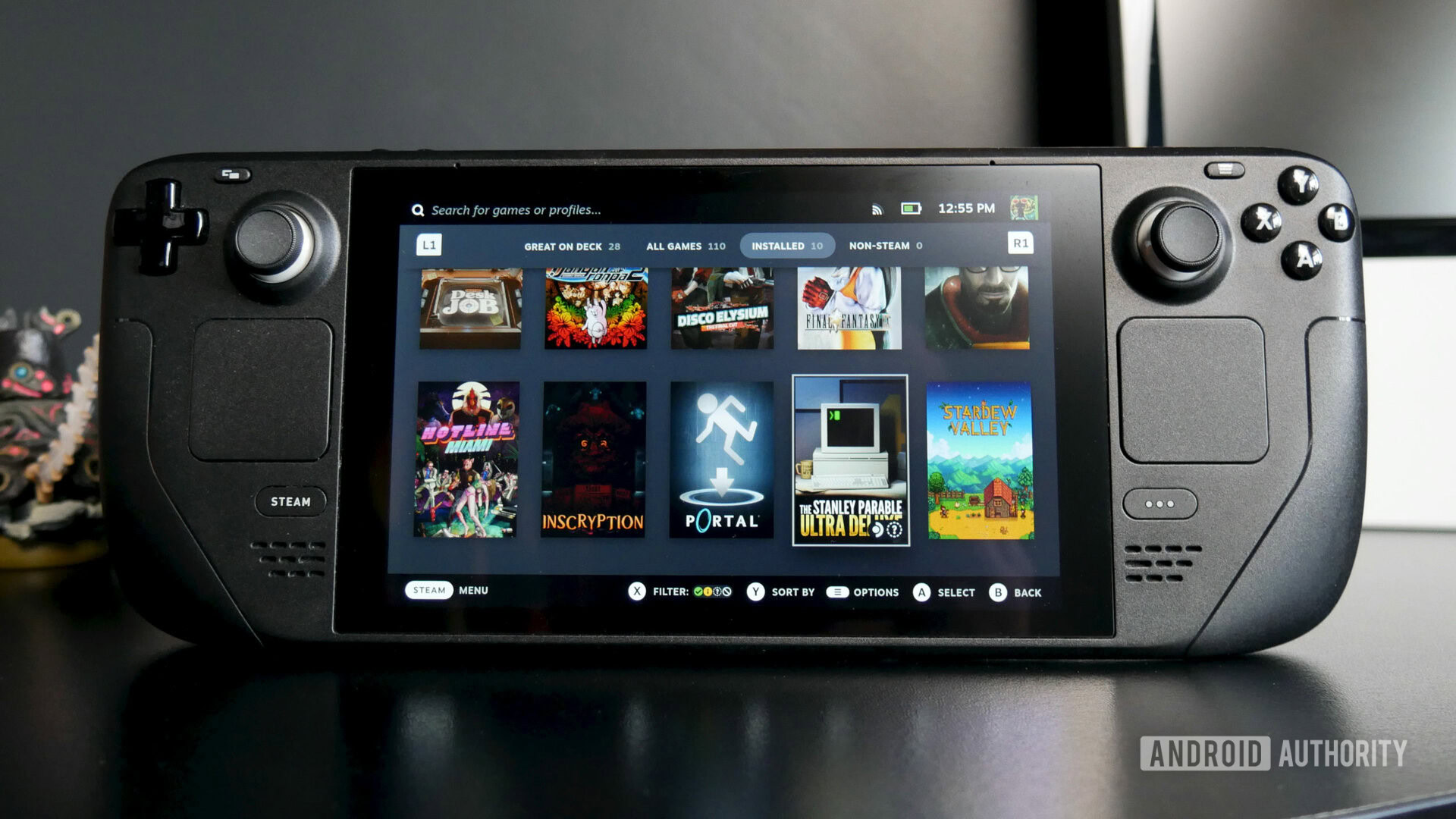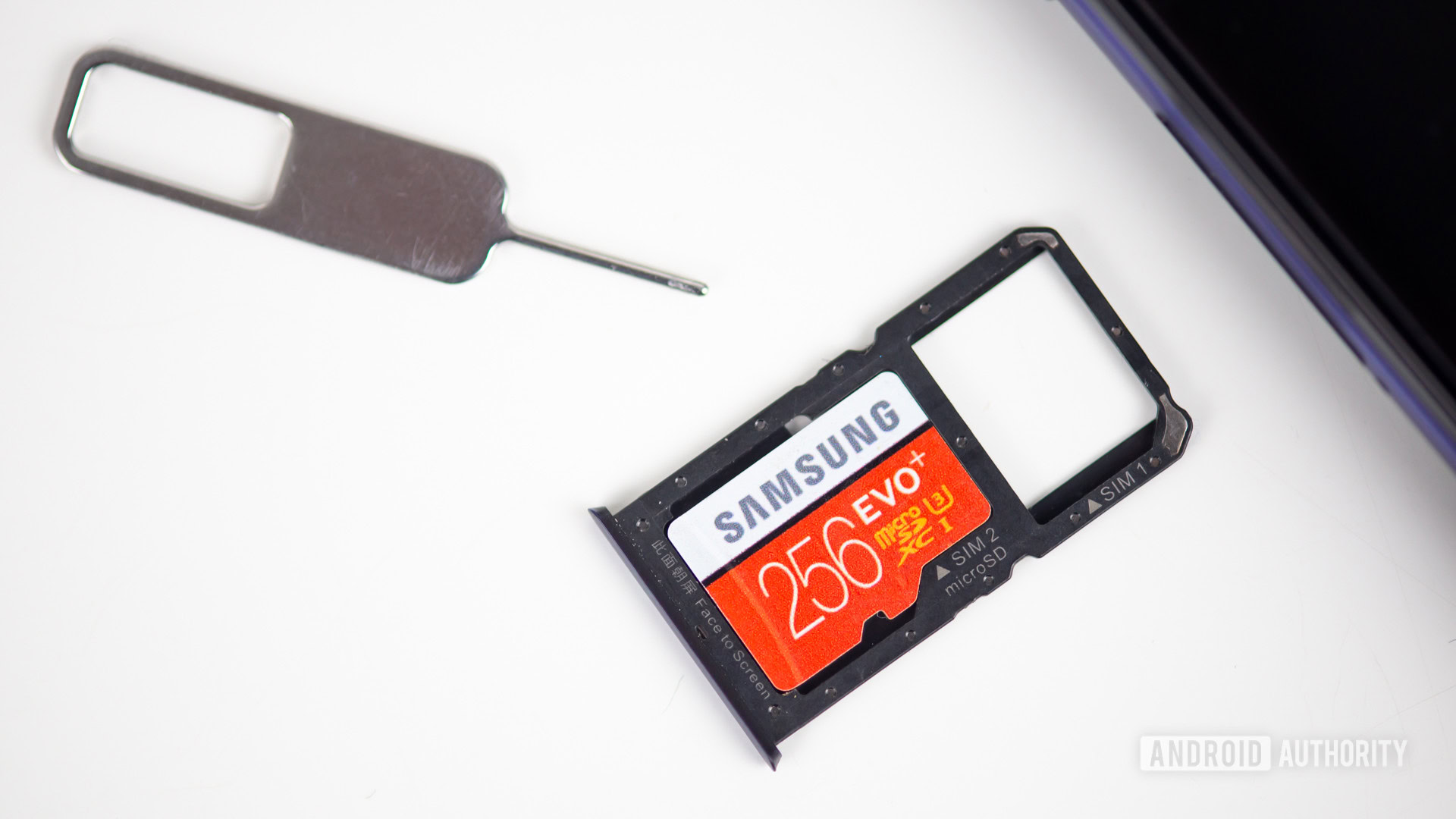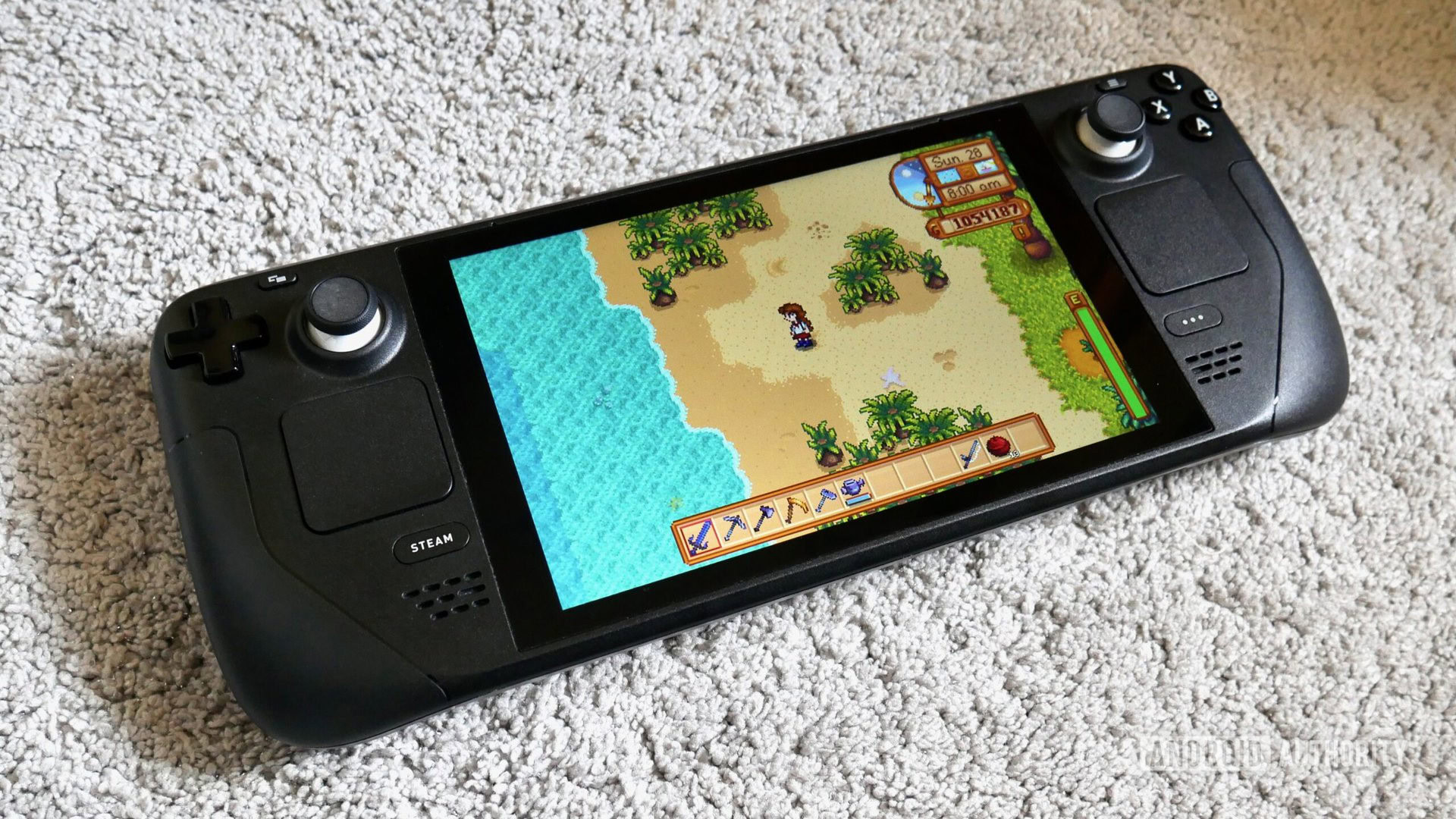Affiliate links on Android Authority may earn us a commission. Learn more.
Which Steam Deck should you buy? It's all about storage.

The Steam Deck is a handheld console for avid PC gamers on the go, especially those with extensive Steam libraries. You’ll need large storage if you want to install your entire collection. Valve offers the device in three storage guises, but each has pros and cons. With that said, which Steam Deck should you get? We hope to help you answer the question below.
QUICK ANSWER
Those on a strict budget or willing to upgrade should opt for the 64GB Steam Deck. However, those who don't wish to tinker with their device and want more storage immediately should purchase the larger storage variants. The Steam Deck OLED also presents an alternative, with a larger display and mild upgrades.
JUMP TO KEY SECTIONS
Steam Deck models compared
The original Steam Deck models feature the same core internal specs, display, and bodies. However, there’s one important difference: storage technology and quantity. Now that the Steam Deck OLED exists, there are a few more things to factor in. Find a breakdown of the devices below.
| Steam Deck 64GB | Steam Deck 256GB | Steam Deck 512GB | Steam Deck OLED | |
|---|---|---|---|---|
Operating System | Steam Deck 64GB SteamOS | Steam Deck 256GB SteamOS | Steam Deck 512GB SteamOS | Steam Deck OLED SteamOS |
Dimensions | Steam Deck 64GB 298 x 117 x 49mm 669 grams | Steam Deck 256GB 298 x 117 x 49mm 669 grams | Steam Deck 512GB 298 x 117 x 49mm 669 grams | Steam Deck OLED 298 x 117 x 49mm ~640 grams |
Chipset | Steam Deck 64GB AMD Aerith APU system-on-chip (7nm) | Steam Deck 256GB AMD Aerith APU system-on-chip (7nm) | Steam Deck 512GB AMD Aerith APU system-on-chip (7nm) | Steam Deck OLED AMD Aerith APU system-on-chip (6nm) |
Memory | Steam Deck 64GB 16GB of LPDDR5 RAM | Steam Deck 256GB 16GB of LPDDR5 RAM | Steam Deck 512GB 16GB of LPDDR5 RAM | Steam Deck OLED 16GB of LPDDR5 RAM |
Storage | Steam Deck 64GB 64GB eMMC microSD | Steam Deck 256GB 256GB NVMe SSD microSD | Steam Deck 512GB 512GB NVMe SSD microSD | Steam Deck OLED 512GB/1TB NVMe SSD microSD |
Power | Steam Deck 64GB 45W charging via USB-C 40Whr battery (estimated 2-8 hours of gameplay) | Steam Deck 256GB 45W charging via USB-C 40Whr battery (estimated 2-8 hours of gameplay) | Steam Deck 512GB 45W charging via USB-C 40Whr battery (estimated 2-8 hours of gameplay) | Steam Deck OLED 45W charging via USB-C 50Whr battery (estimated 3-12 hours of gameplay) |
Display | Steam Deck 64GB 7-inch IPS LCD touchscreen 60Hz refresh rate 1280x800 resolution | Steam Deck 256GB 7-inch IPS LCD touchscreen 60Hz refresh rate 1280x800 resolution | Steam Deck 512GB 7-inch IPS LCD touchscreen 60Hz refresh rate 1280x800 resolution | Steam Deck OLED 7.4-inch HDR OLED touchscreen 90Hz refresh rate 1280x800 resolution |
Connectivity | Steam Deck 64GB Bluetooth 5.0 Wi-Fi 5 1x USB-C 3.2 Gen 2 3.5mm headphone jack | Steam Deck 256GB Bluetooth 5.0 Wi-Fi 5 1x USB-C 3.2 Gen 2 3.5mm headphone jack | Steam Deck 512GB Bluetooth 5.0 Wi-Fi 5 1x USB-C 3.2 Gen 2 3.5mm headphone jack | Steam Deck OLED Bluetooth 5.3 Wi-Fi 6E 1x USB-C 3.2 Gen 2 3.5mm headphone jack |
Extra features | Steam Deck 64GB Carrying case | Steam Deck 256GB Carrying case Steam Community profile bundle | Steam Deck 512GB Anti-glare etched glass coating Exclusive carrying case Exclusive Steam Community profile bundle Exclusive virtual keyboard theme | Steam Deck OLED Carrying case with removable liner Steam profile bundle Exclusive startup movie Exclusive virtual keyboard theme |
Price | Steam Deck 64GB $399 | Steam Deck 256GB $529 | Steam Deck 512GB $649 | Steam Deck OLED 512GB: $549 1TB: $649 |
What is the Steam Deck OLED?

In November 2023, Valve announced a mid-cycle refresh in the form of the Steam Deck OLED. As its name suggests, the device boasts a larger OLED display as its key feature, refreshing at 90Hz and stretching to 7.4 inches. Beyond this, a chipset die shrink (7nm to 6nm), upgraded wireless technologies, a larger battery, and a 1TB storage option.
On the surface, it doesn’t stand out as a huge upgrade; however, considering its launch price is $20 lower than the 512GB LCD option and boasts the same storage bank, it’s well worth considering if you’re willing to splurge on a handheld gaming console.
eMMC vs NVMe vs microSD cards: Storage technologies explained

As the table above suggests, there’s a distinct internal storage difference between the cheapest Steam Deck and the two pricier models. While all devices use 2230 SSD drives, they employ slightly different technologies.
eMMC, or embedded MultiMediaCard, is employed on the cheapest model. This solution reduces costs but has slower theoretical read/write speeds than pricier alternatives.
The 256GB and 512GB models use NVMe or Non-Volatile Memory express storage. This solution is much faster, providing higher theoretical read/write speeds on these models, but more expensive than eMMC. This is reflected in the $130 and $250 premium over the 64GB model.
Theoretically, the faster storage should allow the pricier models to boot, install, and load games faster than the cheapest model. In practice, this will vary from game to game and application to application and may not even be apparent in real-world scenarios.
Common across the trio are microSD card storage slots. These allow users to seamlessly add storage to their devices, similar to the Nintendo Switch. Although slower than NVMe storage, grabbing one of the best microSD cards is a fool-proof way to bolster Steam Deck storage without tinkering with internal components.
Can you upgrade the storage on your Steam Deck?

Yes, a Steam Deck storage upgrade is physically possible. Valve doesn’t lock down the storage in any way. It’s not soldered to the motherboard, so removing a few screws is all you must do to upgrade the storage. Valve uses 2230 drives, so you must purchase a replacement first. Thankfully, these drives aren’t as rare as they used to be. If you replace the Steam Deck’s internal storage drive, you’ll have to reinstall SteamOS. However, that’s also a pretty easy undertaking.
It’s also worth noting that not all drives consume the same amount of power. Replacing your device’s 2230 SSD might result in a higher power drain than the original drive. However, this downside might be negligible, especially when weighed against the upside of more storage.
Alternatively and understandably, if you don’t want to open your device, slotting in a microSD card will provide a quick, non-invasive way to upgrade the storage on your Steam Deck.
Is the 256GB and 512GB Steam Deck worth it?

Each Steam Deck appeals to slightly different buyers, so we’d argue each model is worth it to someone. However, the 64GB option provides the best value for those on a strict budget, those who don’t mind removing a few screws to upgrade their device, or those who want to play Stardew Valley and little else and don’t need more capacity. You can also save cash to invest in pricier Steam Deck accessories.
Paying a ~$130 premium for 128GB more storage makes little sense, mainly since Valve also provides a microSD card expansion slot. You can regularly get 1TB microSD cards for under $100, but you must deal with theoretically slower data transfer times. It really depends on what’s important to you: speed, convenience, or storage capacity.
The 256GB and 512GB models are worth considering for specific users. If you’re a parent and don’t want the hassle of buying microSD cards for your child’s system, these larger storage options make sense. Additionally, if you’re not confident in your tinkering ability or don’t want to open up your Steam Deck lest you damage it, the 512GB option provides more than enough storage from the offset. You may have a sizeable legacy games collection. If so, you’ll want to splurge on the largest storage option for your Steam Deck emulator needs.
Beyond storage, the 512GB model also features some optional extras. There’s an exclusive Steam Deck case and anti-glare film, which helps neutralize glare from the device’s obnoxiously shiny display. These exclusives alone don’t warrant the price increase over the other two devices. For instance, you can purchase a matte screen protector from ivoler for $15.99 at Amazon. As for the case, Steam notes that the only big differences are the outer Steam logo, the zipper pulls, and the interior fabric. You probably shouldn’t drop $649 specifically for these niceties. If you are willing to pay more than $500 for a Steam Deck, consider the OLED models.
In August 2023, Valve announced that it would offer refurbished Steam Deck models at a slightly lower price than retail. These devices may have minor cosmetic defects, but the devices feature the same year-long warranty as new devices.
Of course, if you don’t think a Steam Deck is worth it, you have alternative options. There are a host of capable Android retro gaming handhelds if older titles are your thing. At the same time, the ASUS ROG Ally and Lenovo Legion Go provide more serious competition.
FAQs
There are three models of the Steam Deck with 64GB, 256GB, and 512GB of storage.
The Steam Deck uses 2230 SSD internal drives and microSD cards for external storage.
Yes, you can use 2230 2TB drives in the Steam Deck.
2230 SSDs take their name from their dimensions, 22mm wide x 30mm long. They’re used as storage drives in small and thin-bodied devices.
